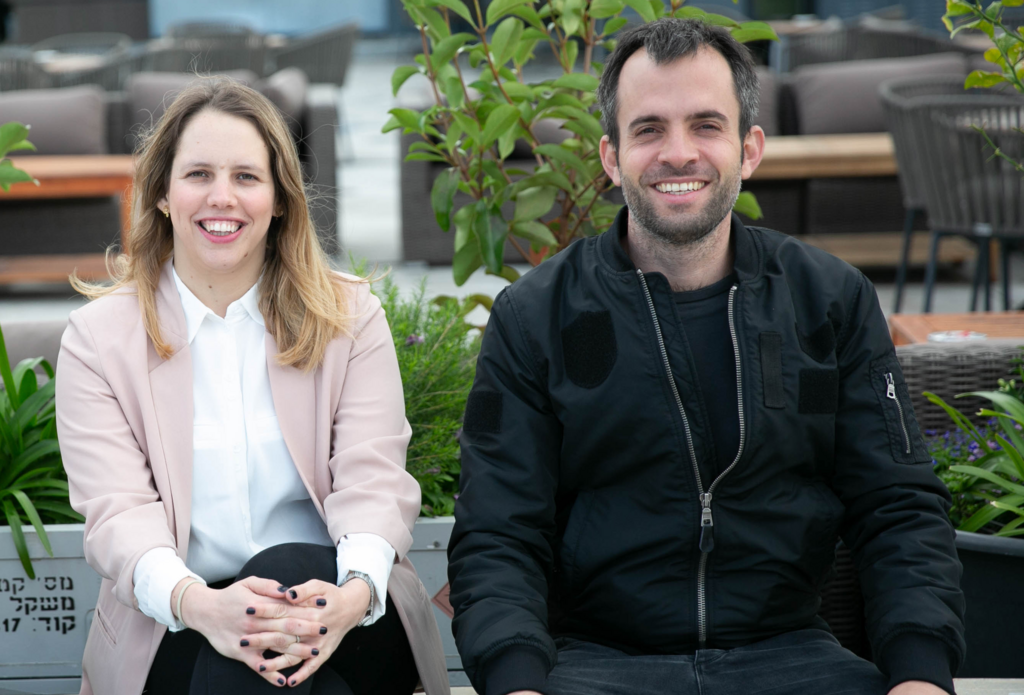
“I wanted to make a real impact”: Michal Meiri on using AI to transform healthcare
The CEO and Co-Founder of healthtech startup Agamon Health spoke to CTech about how she is leveraging AI to streamline workflows, enhance patient care, and address inefficiencies in the healthcare system.
Michal Meiri’s journey to founding and leading a healthtech startup began in an unexpected place: London’s bustling fintech scene. “My expertise was in building data-driven products and transforming traditional industries such as financial services. I was leading product teams from ideation to launch, growing and selling products to large enterprises,” she recalls.
After moving back to Israel, Meiri, who holds a master’s degree in nanotechnology from Cambridge University, found herself contemplating her next steps. “I knew I wanted to take the skills I’d built and apply them to something meaningful. I had seen the transformation that technology brought to financial services, and I wanted to do the same in a field that felt close to my heart.”
That field turned out to be healthcare - a space that Meiri found both challenging and ripe for disruption, married her background in chemistry and computer science with her business experience, and felt like a space where she could have an impact. Meiri and her co-founder, CTO Omri Sivan, who had worked with her at a previous startup, launched Agamon Health in 2019.
Their mission was clear: to close care gaps by improving the administrative side of healthcare. “About a quarter of all healthcare spending in the U.S. goes toward administrative fees,” Meiri explains, “and a lot of that is wasteful and could be automated.” This inefficiency became the focal point of Agamon Health’s AI-driven solution.
While many companies were focused on clinical solutions for physicians, Agamon took a different approach. “We saw a huge opportunity in back-office tasks,” Meiri says. “Eighty percent of healthcare data is unstructured—it’s textual, coming from physician notes. We were intrigued by the idea of taking all of this free-text data and making it actionable, extracting insights to streamline workflows.”
The result is Agamon Health’s proprietary AI technology, which analyzes textual data to identify actionable items in patient care. “We’re focused on streamlining workflows that are currently handled by administrative personnel and physicians. From triaging cases to tracking patients who need further care, our technology ensures that patients are being monitored and followed up on at the right time.”
The company’s initial focus was on oncology, specifically radiology, where most cancer patients’ journeys begin. “Cancer is one of the leading causes of death worldwide, and lung cancer is particularly deadly,” Meiri points out. “If diagnosed earlier, these patients could have their lives extended by 5 to 10 years or longer.” Agamon Health helps healthcare providers identify patients eligible for lung cancer screening and ensures that they follow through with their care.
However, the company’s technology isn’t limited to lung cancer, and the company is already collaborating with the Mayo Clinic to address care gaps in patients with structural valve diseases. “We’re expanding into other specialties, including cardiology,” says Meiri. “But our focus remains on oncology, where we believe we can make the most immediate impact.”
Since launching, Agamon Health has achieved significant milestones. The company began commercial operations in the U.S. in 2021, partnering with major healthcare providers, including Henry Ford Health System and a large imaging network in New York. “We’ve seen remarkable results,” Meiri says. “We’ve reduced administrative work by 30-100%, depending on the organization, and improved patient adherence by 55% on average.”
These achievements have not gone unnoticed. To date, Agamon Health has raised $8 million in funding with their latest round of investment led by eHealth Ventures - a fund focusing on early-stage digital health companies - with participation from investors in Europe, Israel, and the U.S. “The healthcare market in the U.S. alone is enormous,” Meiri notes. “For cancer care alone, it’s a $10 billion market. It’s not just about identifying patients who missed a scan or follow-up appointment; it’s about improving outcomes through early diagnosis - creating not only better patient care but also unlocking significant downstream revenue for healthcare providers.”
Despite Agamon’s growing success, the road hasn’t been easy. “Starting a company is never simple, especially in healthtech,” Meiri says. “Before COVID, very few VCs were willing to invest in healthtech, and I didn’t know what it meant to raise money back then. But I believed in what we were building.” Meiri credits perseverance and the right partnerships for the company’s progress. “There are always reasons not to do something, but you only need a few yeses to move forward.”
In recent years, advancements in AI, particularly generative AI, have helped accelerate Agamon Health’s development. “We’ve been using AI for five years now, long before it became a buzzword,” Meiri says. “But what sets us apart is our vertical knowledge and focus. General AI solutions are helpful, but healthcare is complex. Companies like ours that understand how to integrate AI into existing systems will be the ones to succeed.”
For Meiri, the future of AI in healthcare is bright. “AI is enhancing the efficiency of the existing workforce,” she explains. “It allows healthcare professionals to focus more on patient care. But, compassion, calling a patient, offering a human touch - these are the personal connections that I believe no technology can ever replace.”















